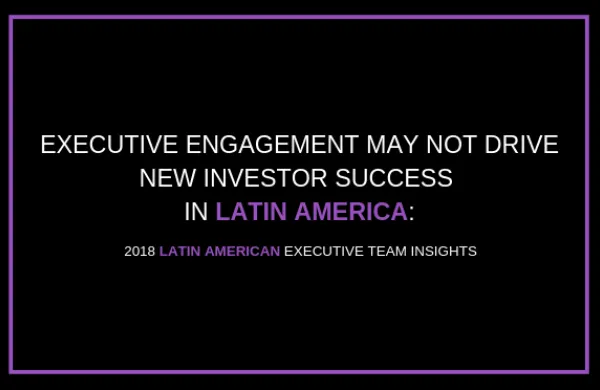Corporate executives around the world are struggling with sluggish growth and pressures on profitability, but they could spare a thought for bosses in Latin America. The steady decline in growth in recent years turned into an outright contraction of output across Latin America and the Caribbean in 2015, and that recession is expected to deepen this year, which would produce the region’s first two-year downturn since the outbreak of the Latin American debt crisis in 1982–’83.
Yet even in this challenging environment, some chief executives are managing to generate admirable growth.
Consider WEG, a maker of motors and industrial machinery based in Jaraguá do Sul, southwest of São Paulo. Last year Brazil’s gross domestic product fell by 3.8 percent, according to the International Monetary Fund, a harsh recession to be sure, yet WEG boosted net profit by 21 percent, to 1.16 billion reais ($358 million), while revenue grew by 24 percent, to 9.8 billion reais.
For WEG the answer to Brazil’s recession was blowing in the wind, you might say. The company entered the renewable-energy business in August 2013 by striking a partnership with Vermont-based Northern Power Systems, which enabled WEG to sell utility-scale wind turbines. Last year renewable energy was its main driver of growth in sales and profit.
The expansion of the wind power business is just one example of WEG’s adaptability and innovation. Last year the company derived 49 percent of its revenue from products and services introduced in the past five years. Such openness to change and willingness to venture into new areas is an absolute necessity in today’s world, says CEO Harry Schmelzer Jr. “The current situation demands that any company review its plans,” he tells Institutional Investor. “We’re changing the direction of the company.”
Many analysts and investors applaud these innovations. They rate Schmelzer as the top CEO in the Capital Goods sector in the 2016 Latin America Executive Team, Institutional Investor’s annual ranking of the region’s top corporate helmsmen. WEG also takes the top spot overall as the sector’s Most Honored Company based on the ratings of its CEO, CFO, investor relations team and IR professionals.
“Combining a long-term strategic vision with top-notch execution, WEG was able to keep high returns for a very long time despite competitive pressures and unfavorable market conditions from time to time, and finally became one of the most successful cases of a Brazilian company expanding into a global player,” says Clecius Peixoto, portfolio manager at Onyx Equity Management in São Paulo.
It’s a similar story for the other executives who figure prominently in this year’s Latin America Executive Team. Amid volatility and slowdowns both global and domestic, the region’s top corporate chieftains are pursuing long-term visions while standing ready to revise their approaches to growth as needed. In so doing, they have managed to deliver value to shareholders over a period when value was seemingly nowhere to be found.
Antonio Carrillo Rule, CEO of chemicals, petrochemicals, and pipe producer Mexichem, has remained agile in his planning as the economic context has demanded it.
“I think Mexichem has been going through a transition over the last few years,” says Carrillo, who finishes second among his peers in the Oil, Gas & Petrochemicals sector. “We’ve been transforming the company in terms of where our sales and our profits come from.”
A decade ago Mexichem was a pure commodities player, focusing mainly on supplying salt and fluorite for use in chemical processes. In 2007 the business took its first steps toward vertical integration with the purchase of Amanco, one of the biggest PVC pipe makers in Latin America.
Carrillo took over as CEO in June 2012, and under his leadership the company’s shape-shifting has continued. By 2015 more than half of Mexichem’s revenue came from pipes and related end-consumer products. “Petrochemicals businesses are very cyclical,” Carrillo says. “The idea of integrating vertically into more consumer-oriented products is that you take away a lot of the volatility from the petrochemicals.”
A major step in Mexichem’s ongoing transition will be the completion in late 2016 of an ethane cracker in Ingleside, Texas. The $1.5 billion plant, which will process ethane by “cracking” it into ethylene, is a 50-50 joint venture between Mexichem and Occidental Chemical Corp. Carrillo says the new cracker will help his company to more cheaply produce PVC resin, which serves as a base in products such as piping, cable coating, floors and window frames.
Sales rose 3 percent in 2015, to $5.71 billion (the company reports in dollars). On a constant currency basis, revenue would have been up 13 percent.
At Telefônica Brasil, which operates under the brand Vivo, the leadership has used the country’s harsh economic conditions not as an excuse to lower expectations but as an occasion to rethink the best way to go after profits.
“Vivo has proved that even in a tough economy we’ve been able to build shareholder value,” says CEO Amos Genish, who receives top honors in Technology, Media & Telecommunications. “We decided it was time to reinvent the business model of the company.”
Genish joined Telefônica Brasil as its chief executive in March 2015, when Spanish parent company Telefônica paid $9.2 billion for Brazil’s Global Village Telecom, which Genish had co-founded and where he’d served as CEO since 1999. As a veteran of the telecommunications industry, Genish is well versed in the difficulties it is currently facing, not just in Brazil but worldwide: low revenue growth, high debt, declining revenue in voice without sufficient compensation from data and pushback from regulators on price increases.
In an effort to counter these pressures, Genish is moving fast to transition his company to one driven more by data than by voice-based services. Fully 56 percent of revenue came from data-based services in the second quarter of this year, up from 46 percent a year earlier, and Genish hopes to increase that share to 80 percent by 2018.
“That’s really a major milestone for telecoms worldwide,” Genish says. “Our plan is that in five years we won’t charge for voice; voice won’t exist as a service.” Genish’s other big strategic pivot has been in response to Brazil’s recession woes: a focus on value rather than volume. He says the mantra of companies in his sector has traditionally been that telecoms grow primarily based on volume — and most stuck so closely to this received wisdom that they missed the fact that volume during a deep recession won’t be strong enough to sustain growth. Genish has decided to focus instead on higher-income segments of the market, by building up its postpaid customers (which represented 70 percent of revenue from mobile in 2015) and shedding prepaid customers. “We are not getting into fights on pricing in the prepaid market,” Genish says.
Get more research and rankings.





